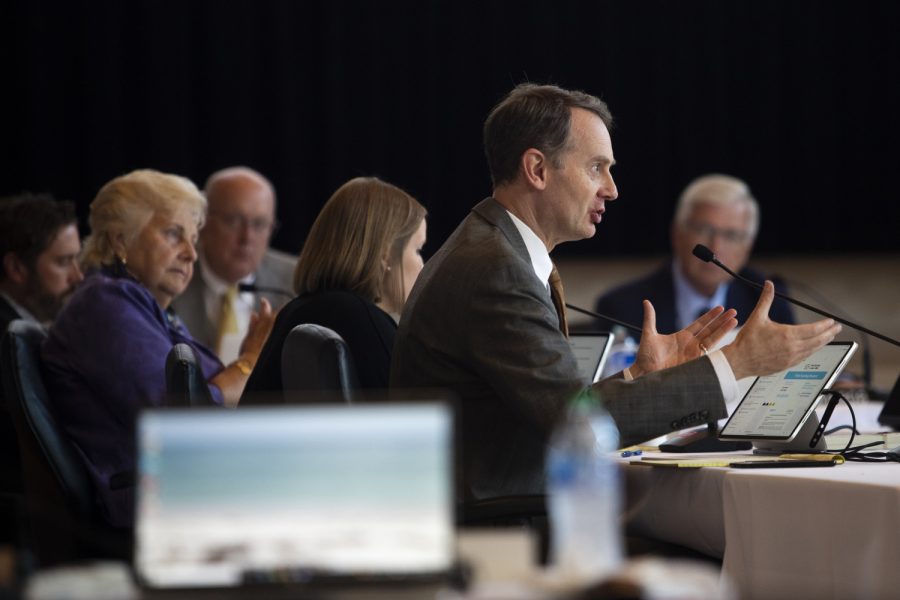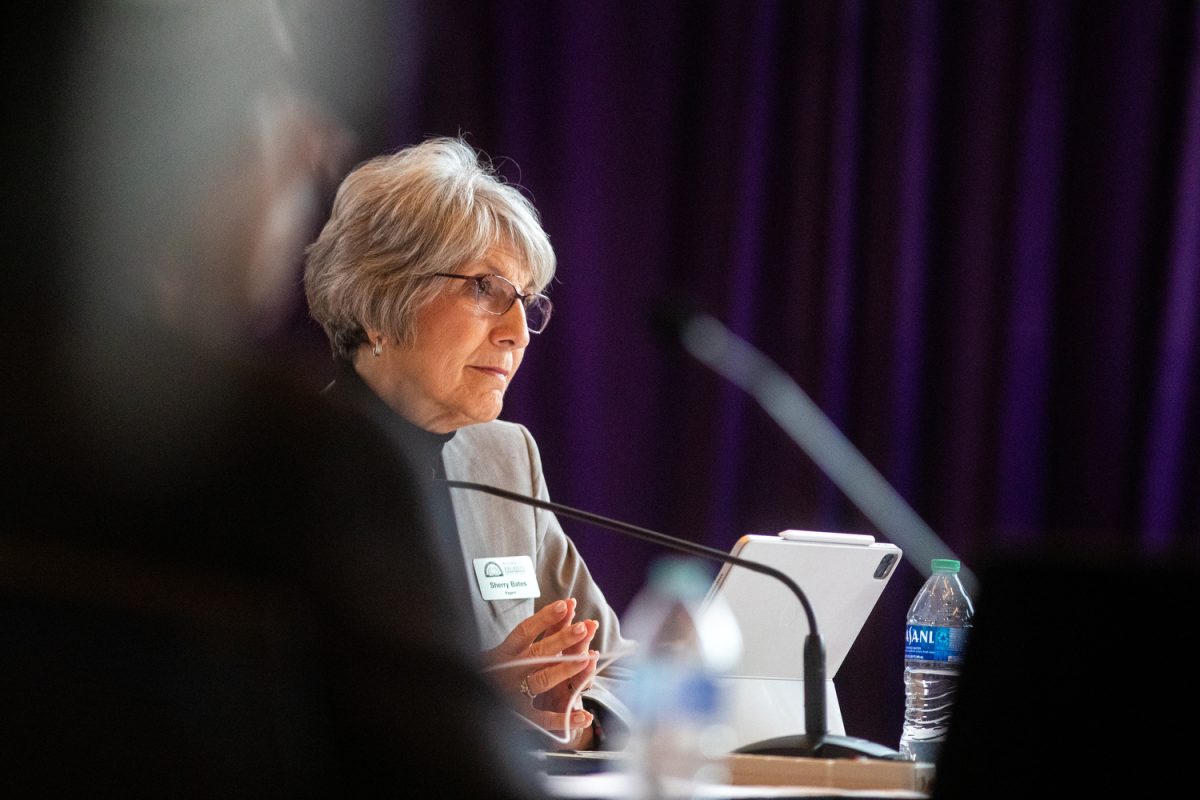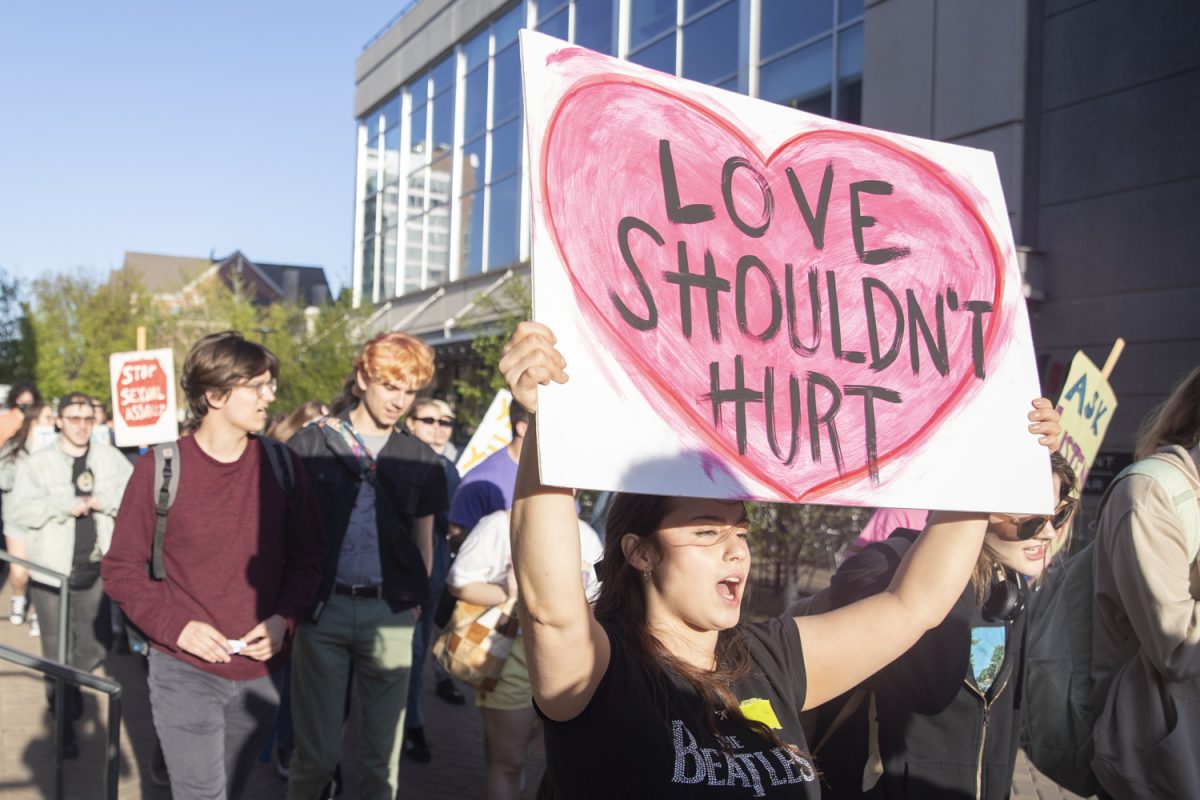Of the 17 major Republican candidates vying for the presidential nomination, one has distinguished himself from the rest, and everyone knows his name.
The Donald.
But Thursday’s first Republican presidential debate — in which the top-10 (averaged among five polls) Republican candidates will face each other — will determine whether business mogul and national frontrunner Donald Trump will continue to act as “catnip to cable news,” as one political-science professor said.
“This debate is important to determining how much longer this will go on,” said Dennis Goldford, a political-science professor at Drake University.
The two-hour debate will be held at Quicken Loans Arena in Cleveland, where the 2016 Republican National Convention will be held.
As of 5 p.m. Tuesday, the candidates who will participate in the debate include Trump, who came in as No. 1, and Iowa’s leading candidate Wisconsin Gov. Scott Walker, as well as New Jersey Gov. Chris Christie and Ohio Gov. John Kasich, who at the end of July became the most recent to announce his presidential bid.
The seven candidates who did not make the cut will take part in an hourlong discussion before the main event.
David Yepsen, the director of the Paul Simon Public Policy Institute at Southern Illinois University, said all eyes will be on Trump, and the event might elevate candidates who challenge Trump.
“Expect it to be a Trump-centric debate,” Yepsen said. “Who pushes back against Trump, who puts Trump in his place?”
One example, Yepsen said, was former Texas Gov. Rick Perry, who has lately hammered statements Trump has made in the past couple of weeks.
Perry, who was on the cusp of making the prime-time debate, has called Trump a “cancer on conservatism” as well as “a toxic mix of demagoguery, mean-spiritedness, and nonsense.”
Yepsen said if Perry had made the debate, it could have been a chance to recover from some of his oops moments from his last presidential run. Yepsen contended that Perry still hasn’t overcome them.
Perry posted on Twitter shortly after the final debate list came up and said he was looking forward to the shorter event for “what will be a serious exchange of ideas and positive solutions to get America back on track.”
Though the prime-time debate is the talk across the nation, one political scientist said it might not change Iowans’ perspectives of the Republican candidates.
Cary Covington, a University of Iowa associate professor of political science, said the main thing the debate will do is suppress the seven candidates who will not participate in the main event.
“I doubt that the debate will do much to shake up Iowans’ perception of candidates,” he said. “It’s much more important for non-Iowans.”
The biggest challenge of the debates this year will be the number of candidates who participate in the events, Covington said.
In the past, there have been too many Republican presidential debates, and they have started earlier. In the 2012 presidential cycle, the Republican presidential debates began on May 5, 2011.
Five of the then-announced candidates participated, with former Massachusetts Gov. Mitt Romney absent. Only announced candidates who had more than 1 percent in national polling were able to participate.
“The thing I think is important to realize is that Republicans have learned there are things as too many debates,” Covington said. “With 10 people, it has to be kind of a cattle-call situation, so Republicans have learned how to have fewer debates. Now, they’ll need to learn how to have fewer debaters.”






